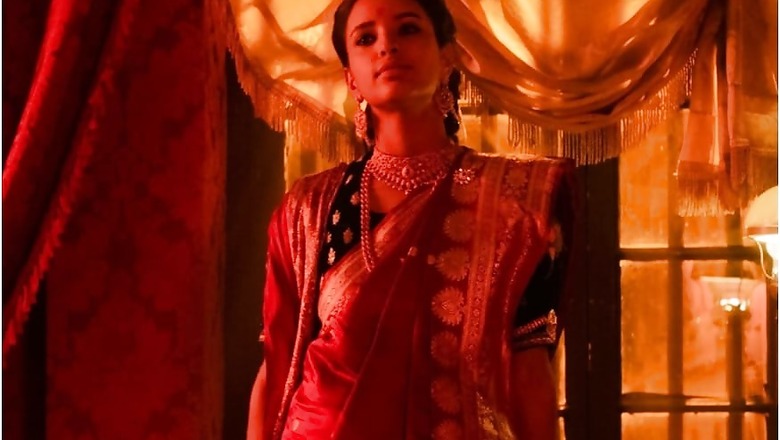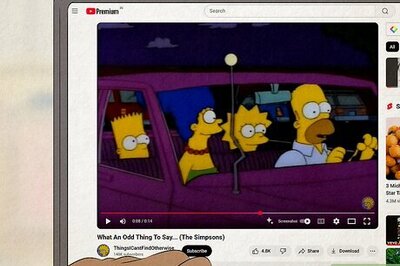
views
Would you rather watch a horror story based on famous folklore, or a ‘thakurain’ defying all gender roles, or a woman fighting generations of systematic oppression and avenging the injustice meted out to her? Well, Anvita Dutt’s Bulbbul brings all of these together, and even more.
Set in 1881 Bengal Presidency, the film starts with a young Bulbbul(Tripti Dimri) and her marriage to ‘zamindar’ Indranil Thakur(Rahul Bose). However, she quickly develops a bond with her husband’s younger brother, Satya (Avinash Tiwary). With their age, grows the bond and notwithstanding it, Indranil sends Satya away to London. Other members of their small family residing in the larger than life ‘raajbari’ or mansion consisted of Indranil’s twin brother Mahendra and his wife Binodini(Paoli Dam). Satya comes back after a leap of 5 years only to find that Indranil has left, Bulbbul has taken up the role of a Thakur, and a widowed Binodini who claims that her husband was killed by the chudail. The story oscillates between those past 5 years and the present.
The film tries its best to take the tale of a witch and twist it into something the audience has never seen before in a Bollywood horror. However it becomes too predictable but it is not the problem of the film as it never tried to masquerade as a thriller with unpredictable plot twists. Rather, the film deals with misinterpreting the concept of a Goddess with that of a witch.
The twisted-leg poltergeist, no points for guessing who, later revealed to be a form Goddess Kali only killed men who were involved in some act of sexual harassment or violated the ‘honor’ of a woman. The concept of a woman fighting against injustice, defying gender roles, and changing the unequal power dynamics sure pass it off as a feminist tale. But maybe it is not as black and white as it seems.
One of the main issues standing between the film and feminism is the treatment of the plot. As much as it seems to empower, the journey of Bulbbul from one timid housewife to a she-demon or Goddess is an unfair one as it deals with the age-old idea of breaking a person before making them. To turn into the strong-headed entity that she became, she had to be subjected to unspeakable domestic violence and rape. Only after she endured all the trauma was her existence validated. It was almost like proving to the patriarchal society that the definition of a strong woman is the one who has gone through all the hardships meted out to her by the very same society. It would have found a better place as a feminist narrative if Bulbbul, as an individual was respected.
Keeping aside the imperfections, the film brings out astonishing performance by the entire cast, which makes it worthwhile.


















Comments
0 comment